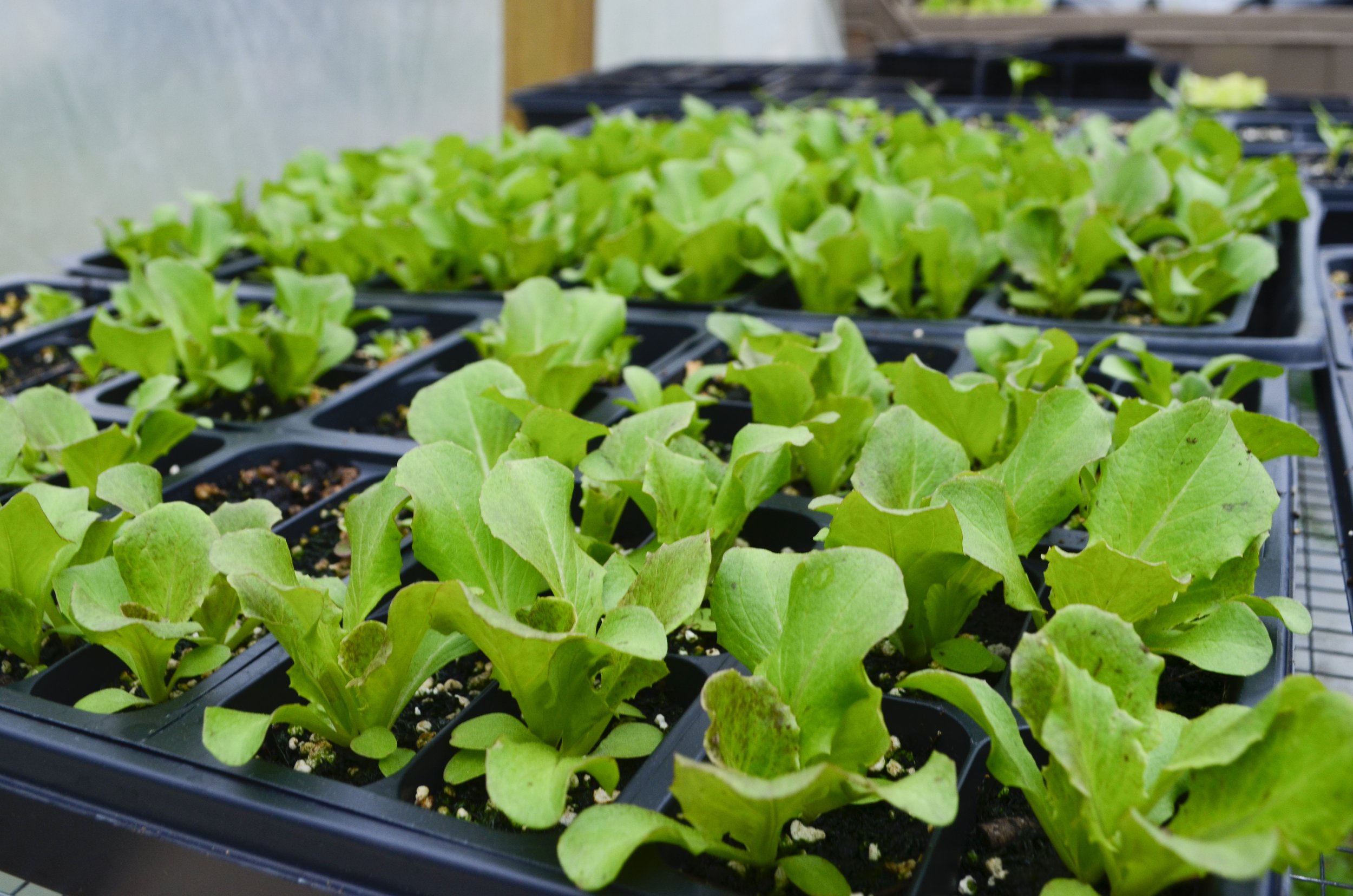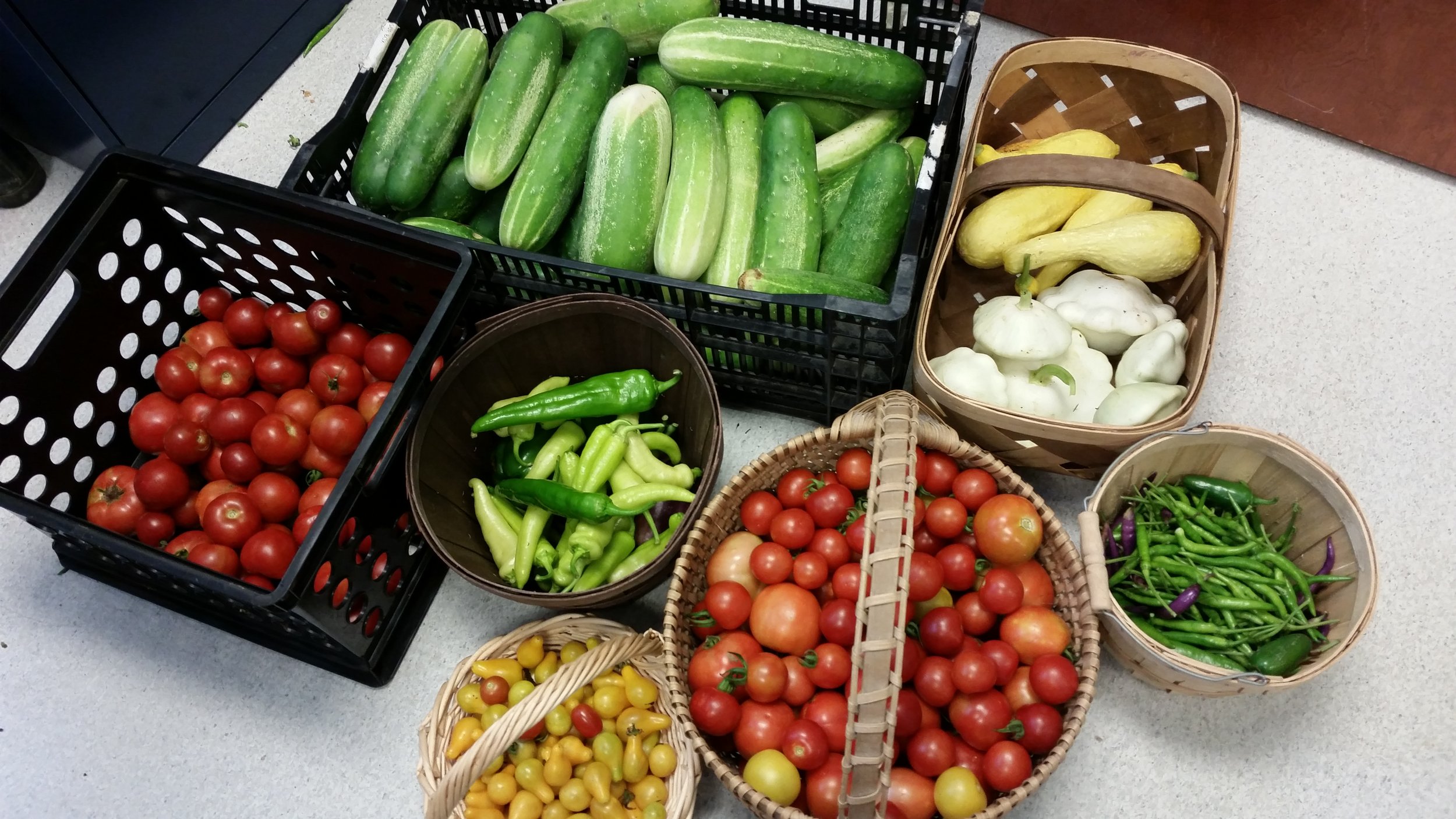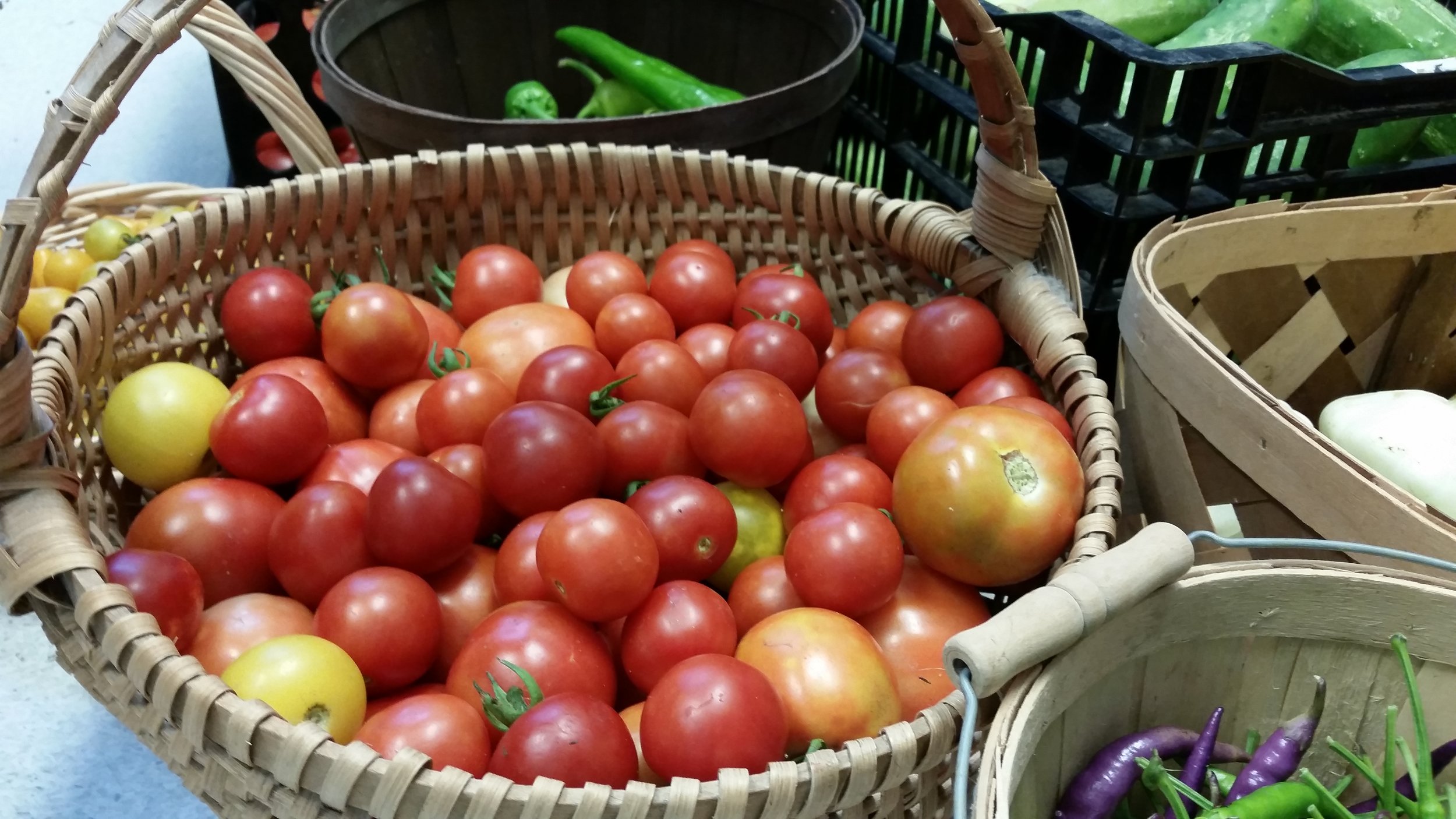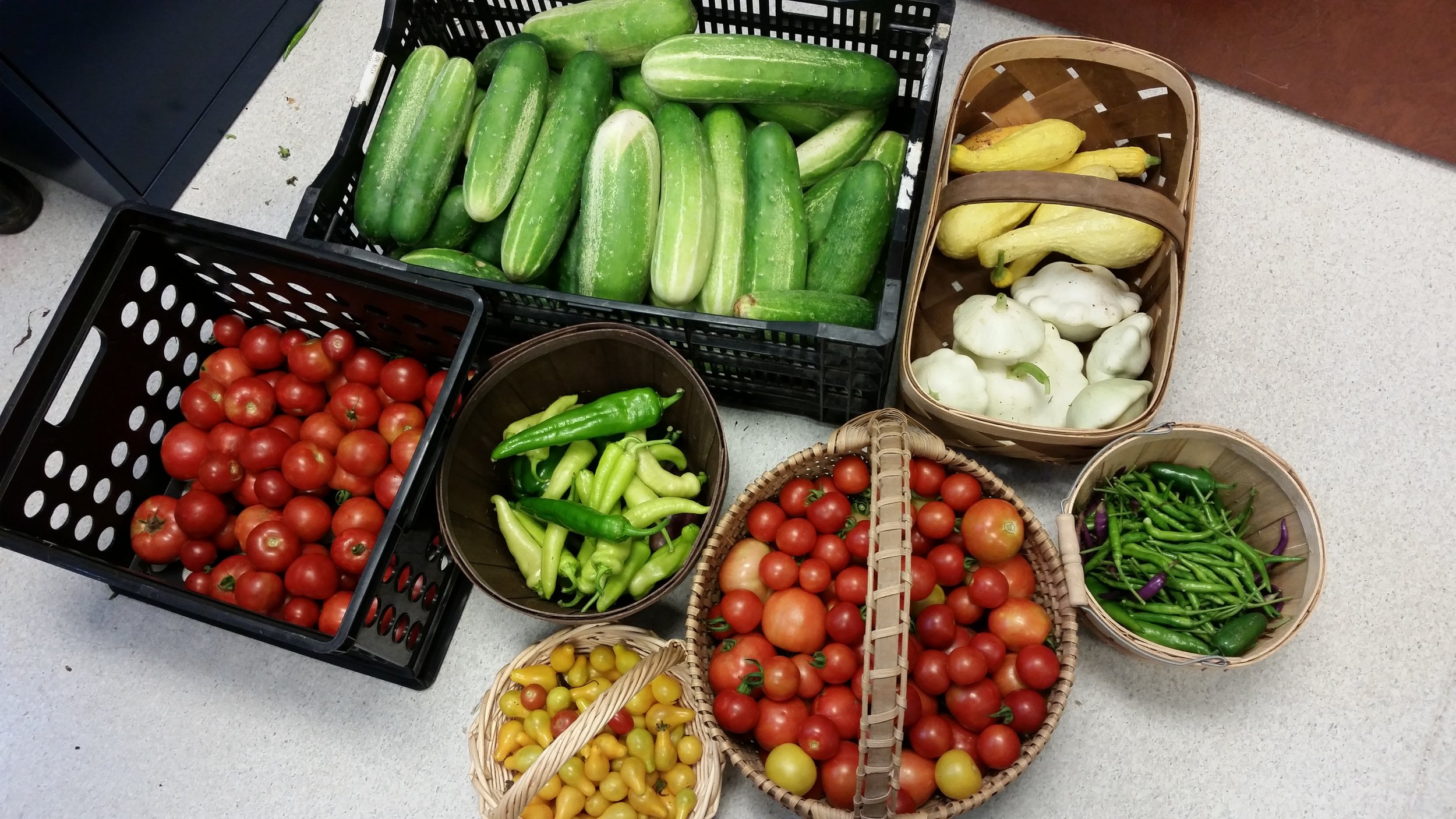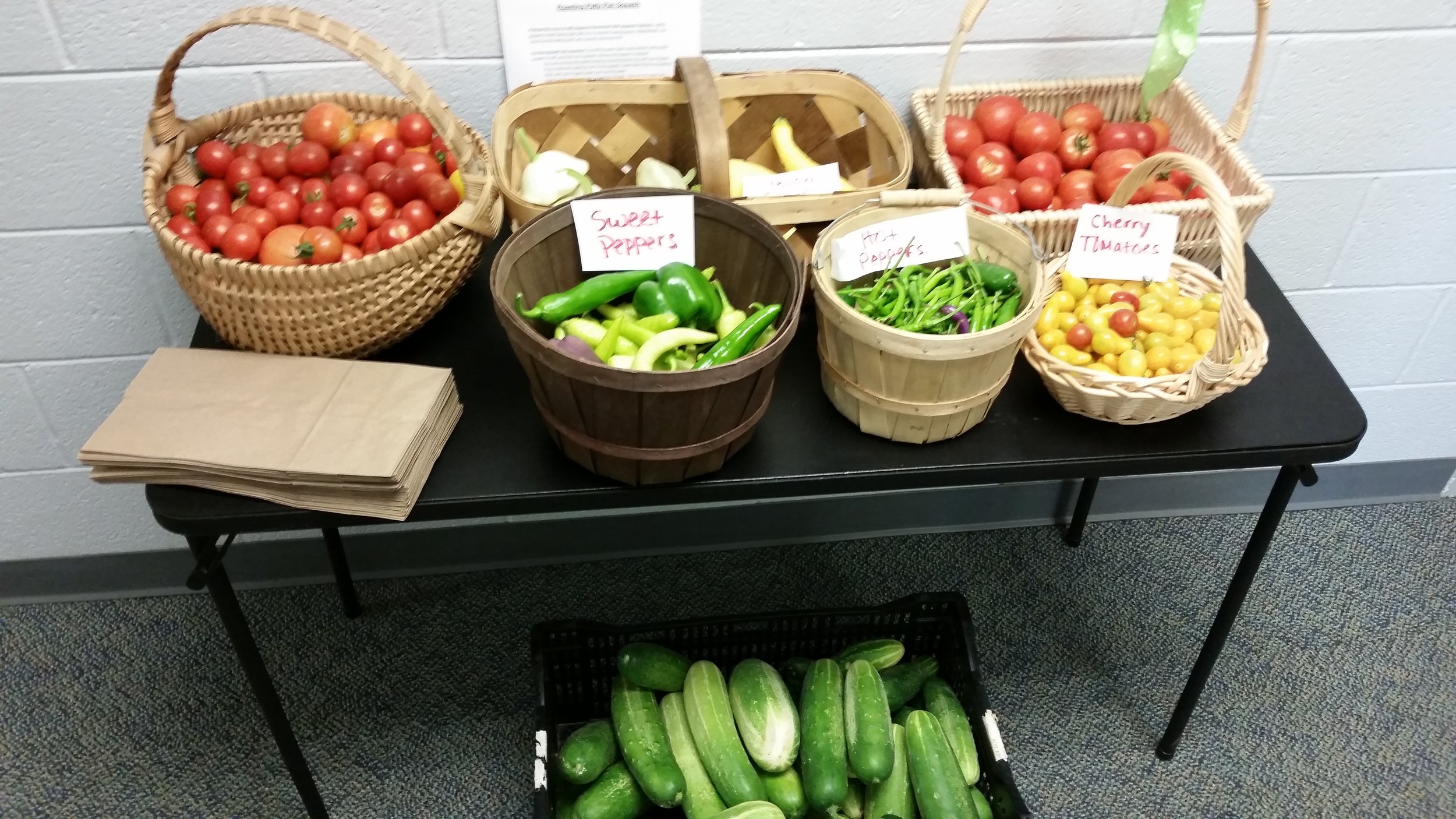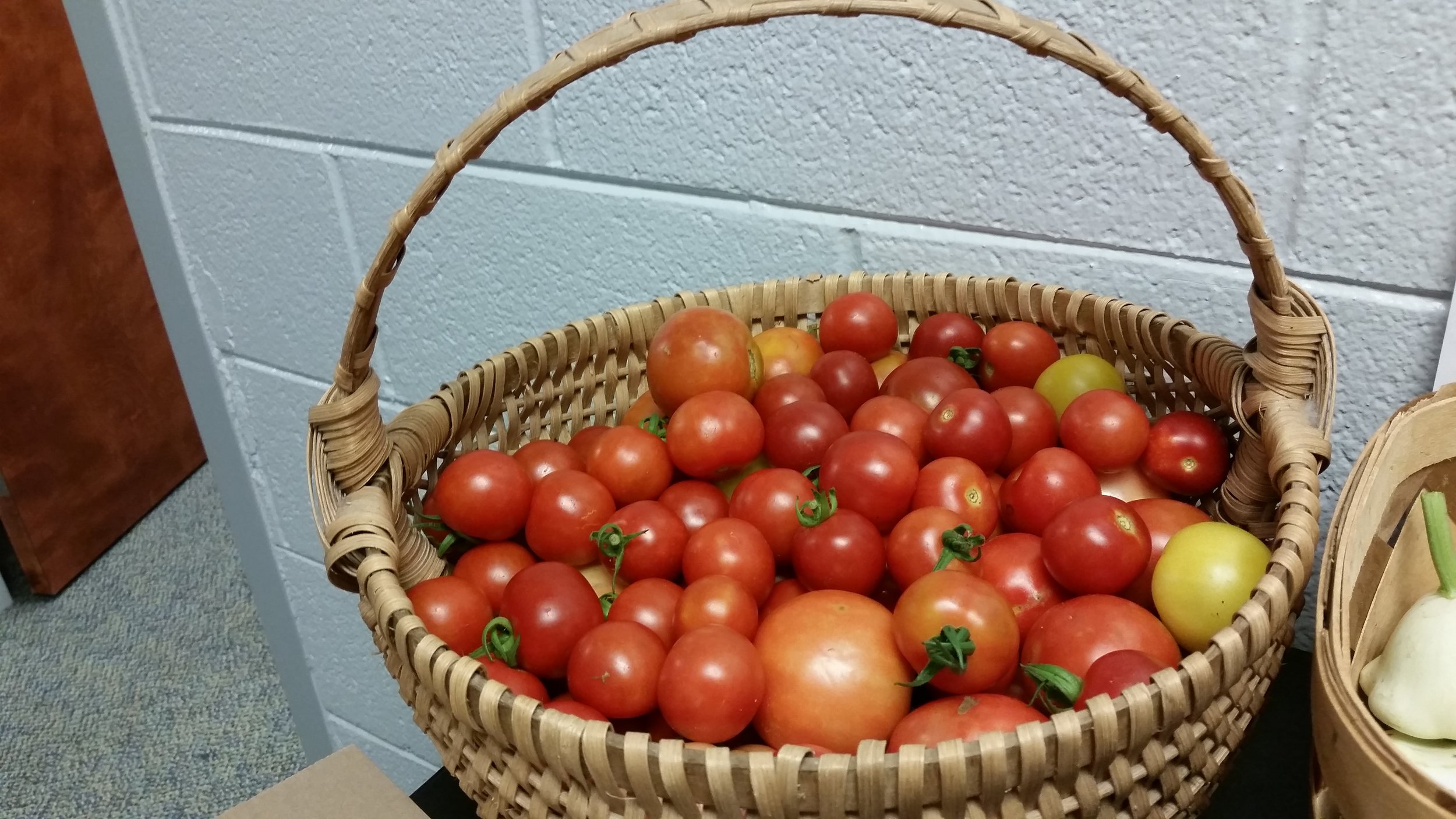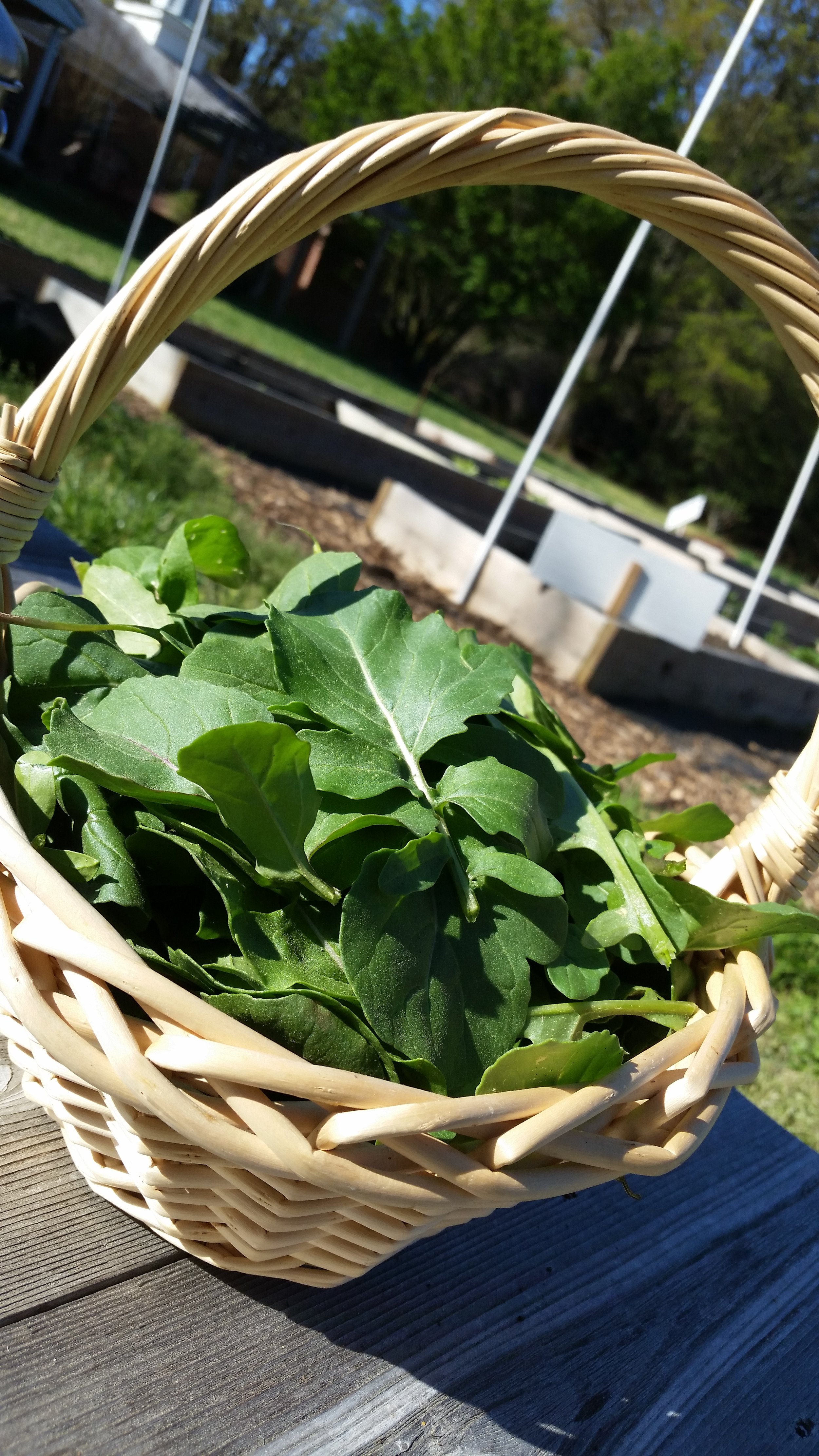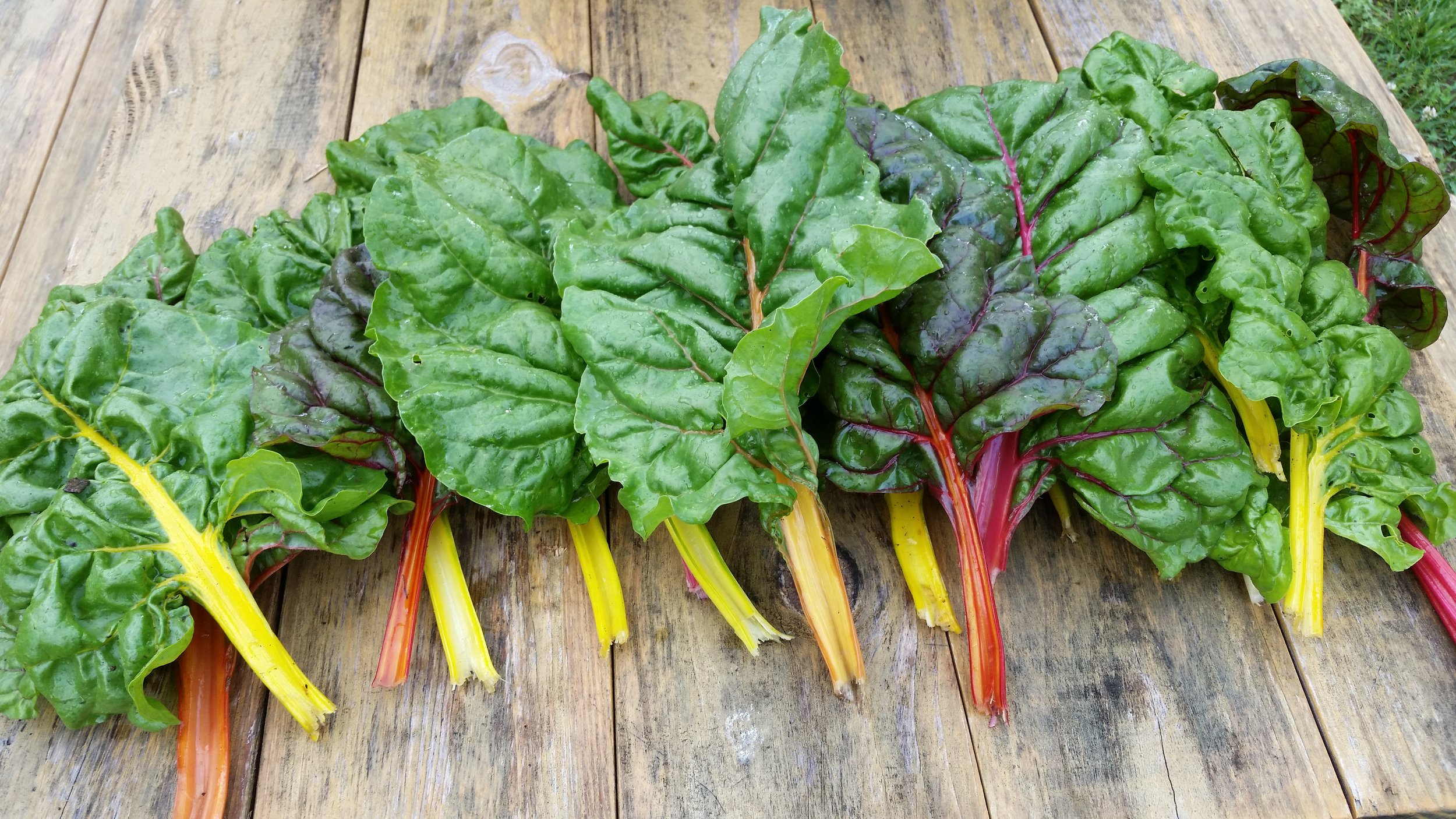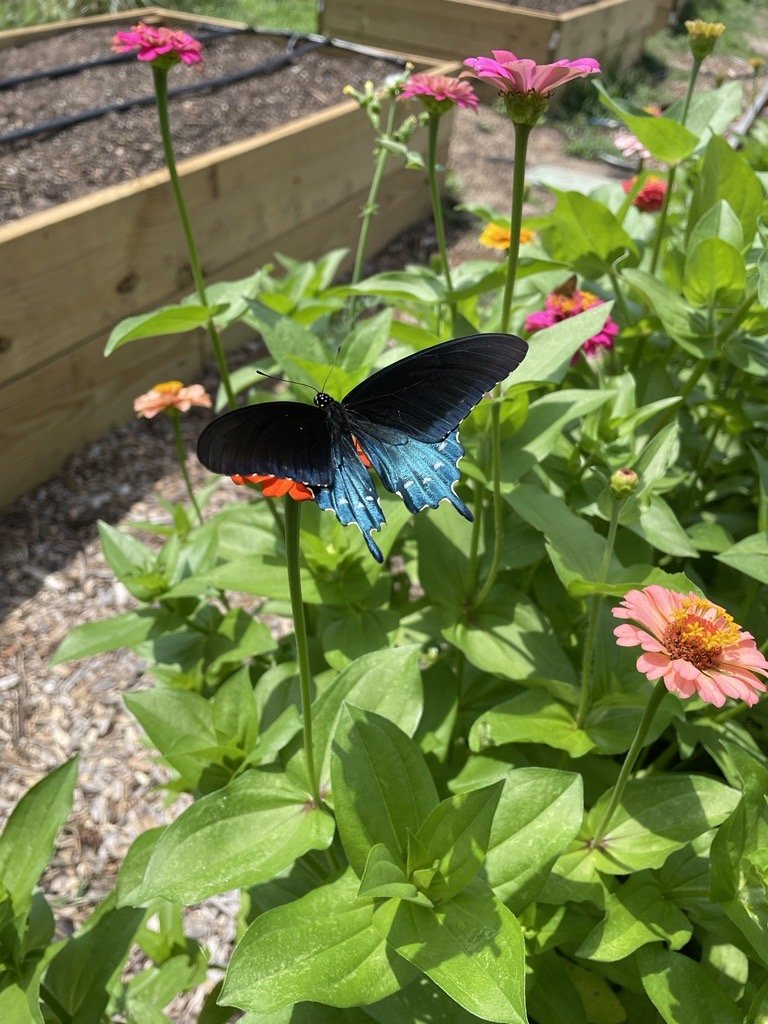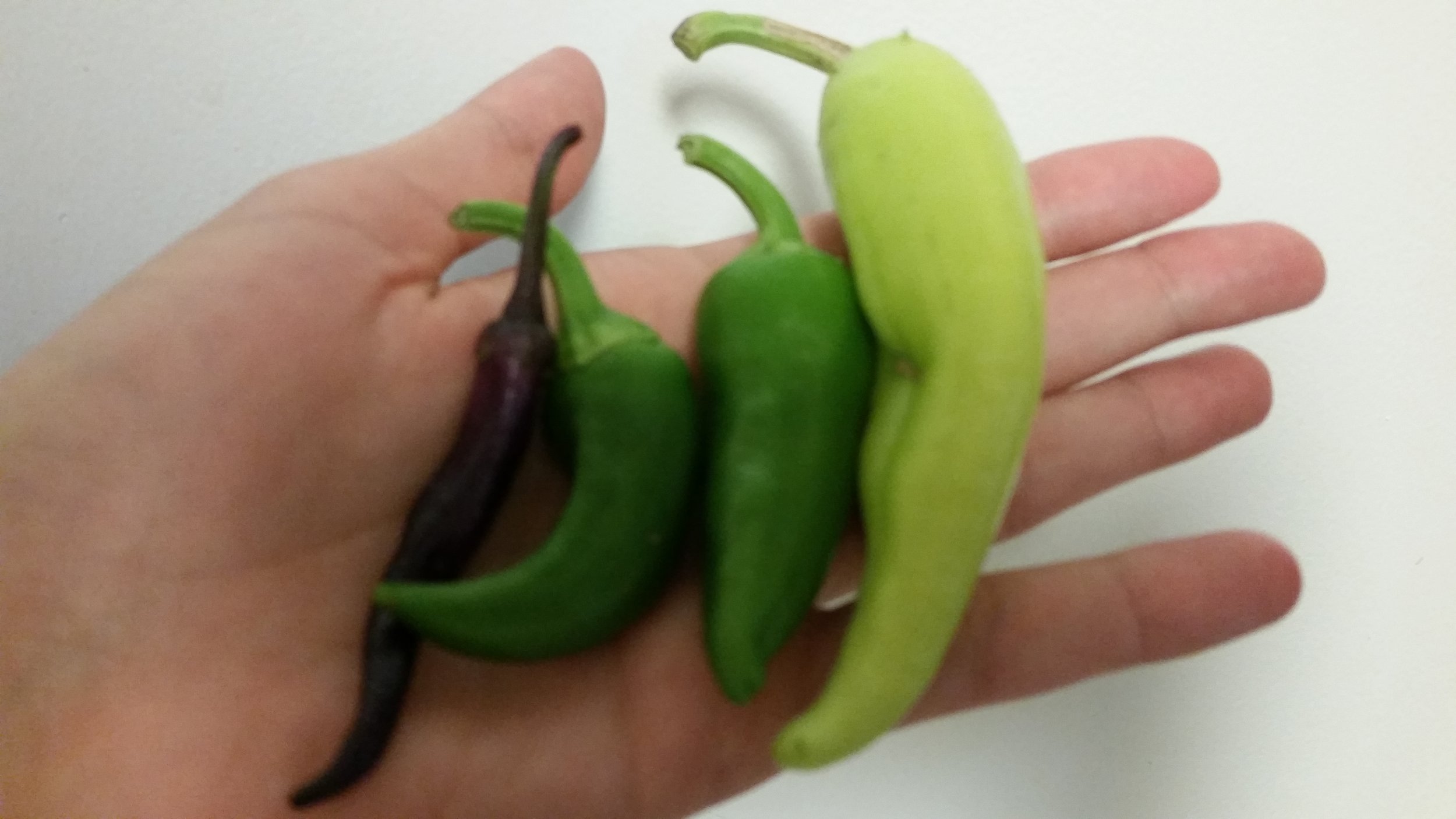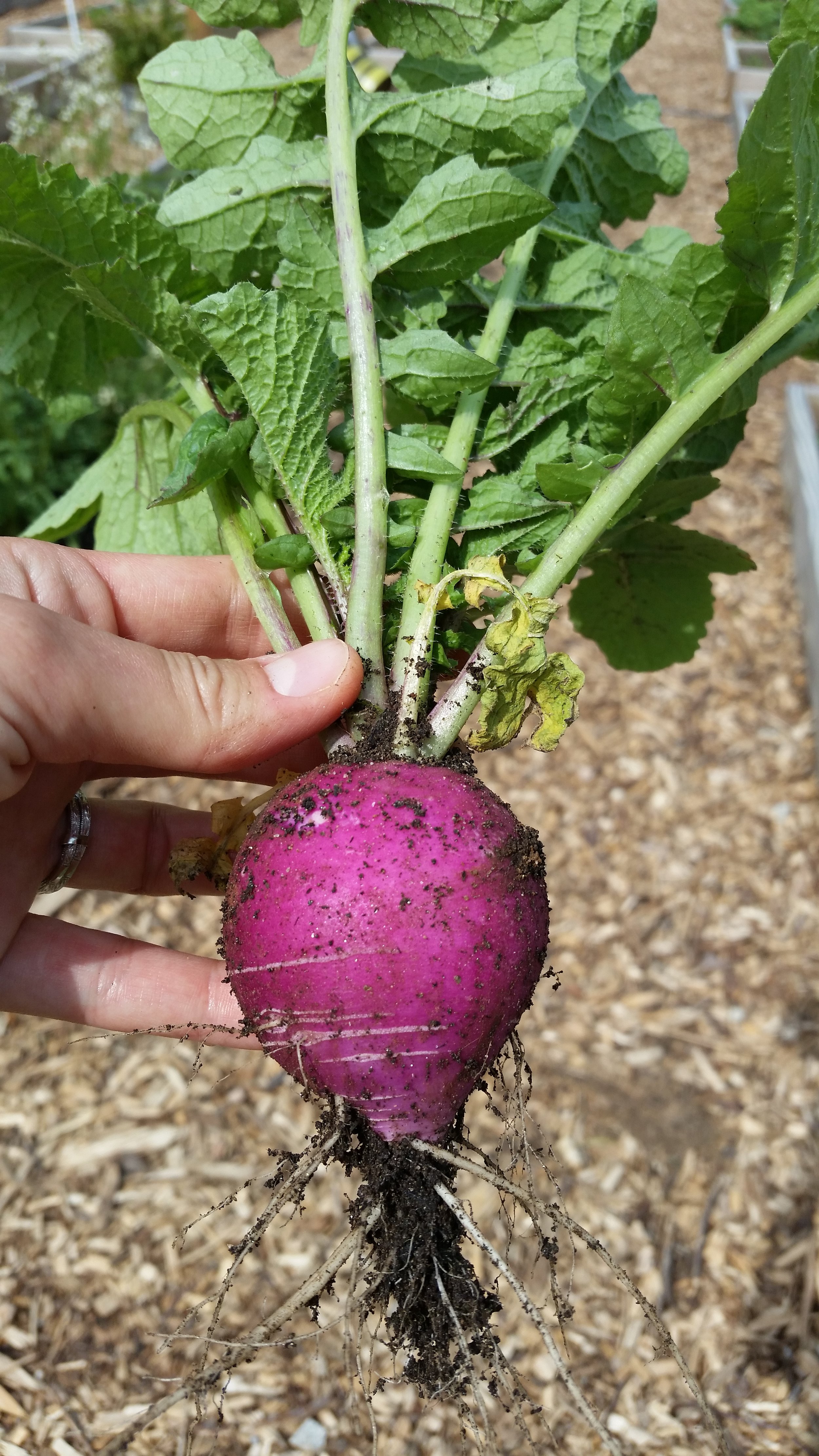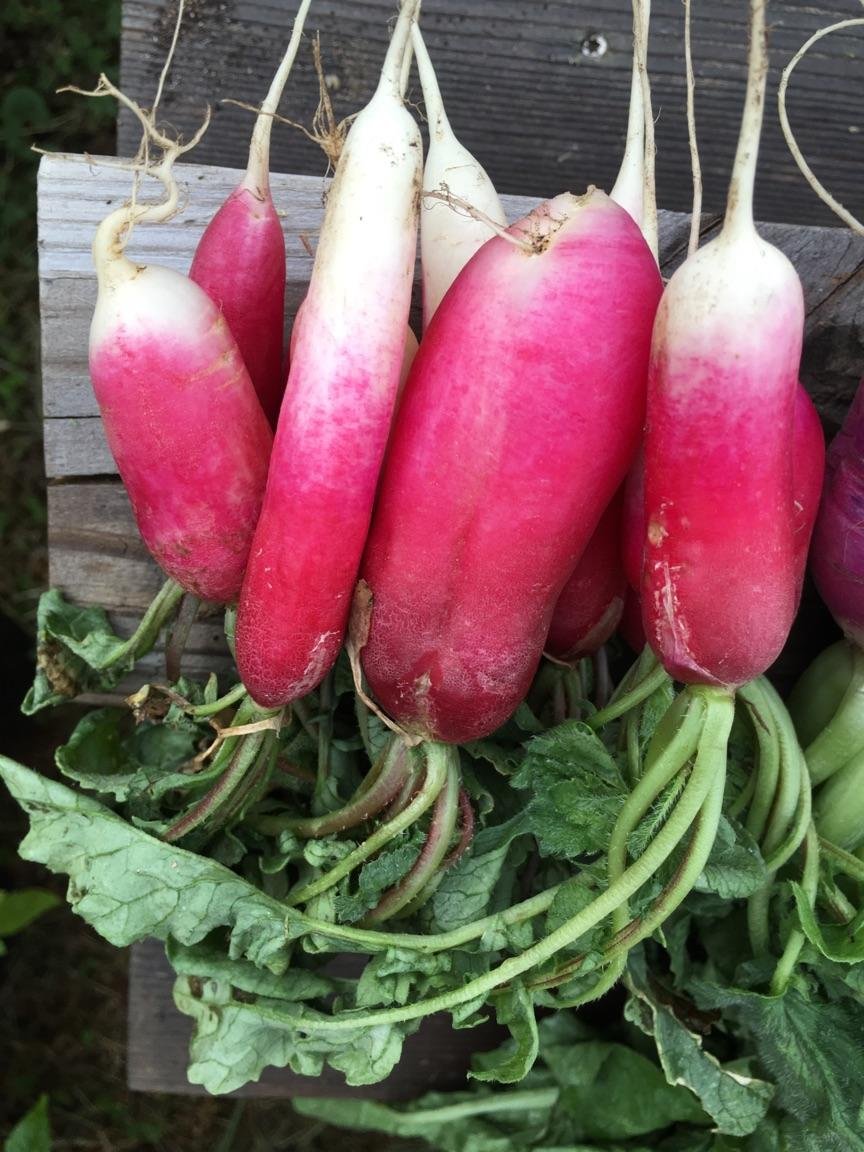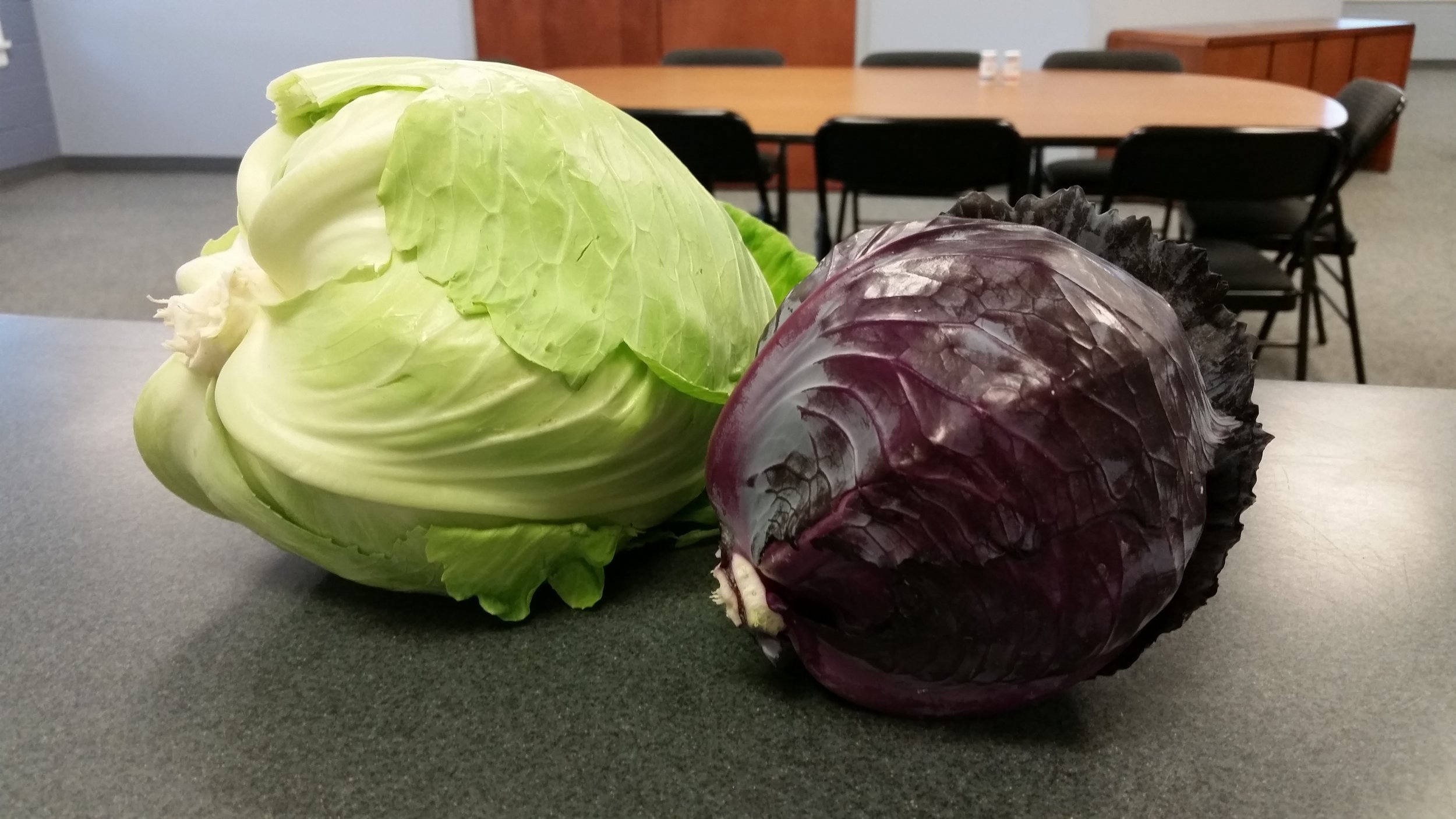By Lauren Willoughby, Farm and Wellness Coordinator
AMM’s garden is maintained through an agroecological approach: that is, we aim to grow food in an environment that supports and is inspired by the earth’s natural processes.
The following are just a few ways we aim to protect the garden’s ecosystem:
Cover cropping
In the fall, we typically sow at least one row of cover crop. Cover crops serve as a groundcover, a source of nitrogen, and, eventually, a source of organic matter in the soil. We typically use crimson clover, a hearty legume that blooms beautifully in the Spring. As a legume, crimson clover “fixes” nitrogen from the air into a form that plants can use in the soil. After growing all winter, we let our clover flower in the Spring for the bees and beneficial insects to enjoy. Then, we terminate it and incorporate the biomass into the soil as organic material.
Supporting pollinators and beneficial insects
Speaking of beneficial insects, the garden has several areas dedicated to pollinators like bees, butterflies, and small birds. These areas are host to native plants like purple coneflower, milkweed, and butterfly weed—all of which attract pollinators. We also manage pests organically to protect beneficial insects from insecticides.
Drip Irrigation
The garden is outfitted with a “drip irrigation” system that reduces water use. Drip irrigation strips slowly release small “drips” of water at the base of the plants, where they can be easily acquired by the plant roots. Not only does this practice save water, it also reduces the risk of fungal plant diseases that spread in moist environments.
Reduced Tillage
Tillage is the agitation or overturning of soil. While its commonly used in agriculture, it can negatively impact soil health by disturbing soil microbiomes that are essential for nutrient cycling and soil structure. To reduce soil disturbance in our garden, we only till when it is necessary (i.e. to incorporate cover crop) and try to use gentler aeration tools such as broadforks.
By implementing these agroecological practices, we are supporting both the earth and the garden’s ability to continue providing fresh produce to patients for years to come!



